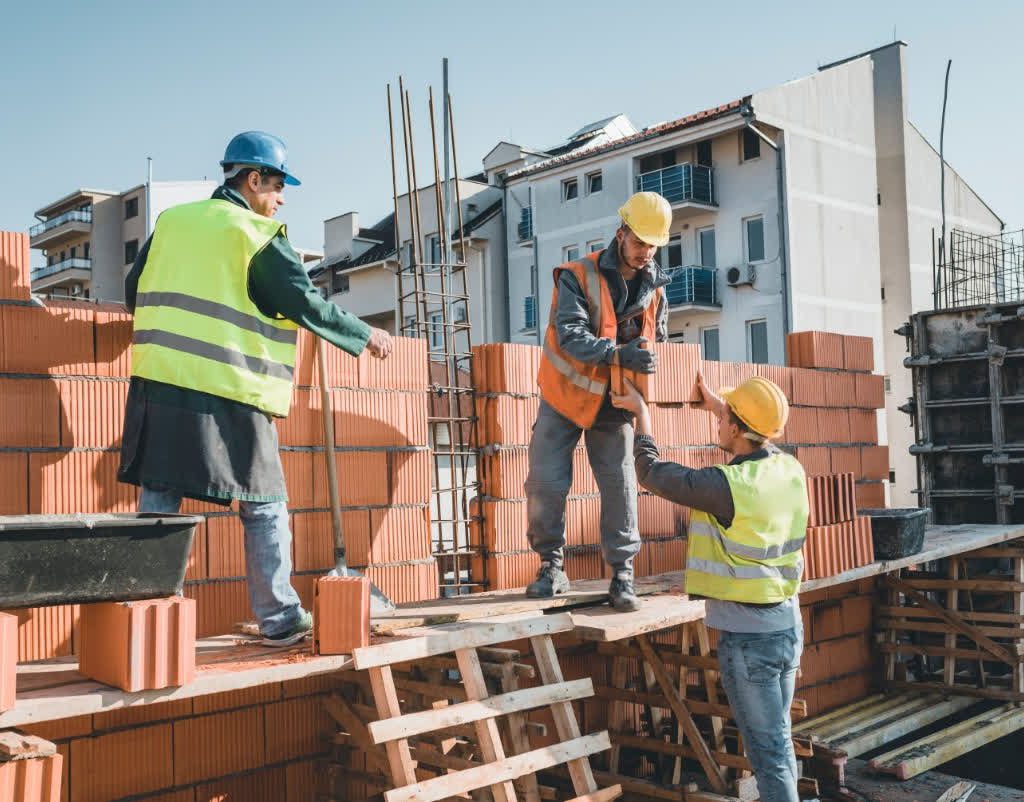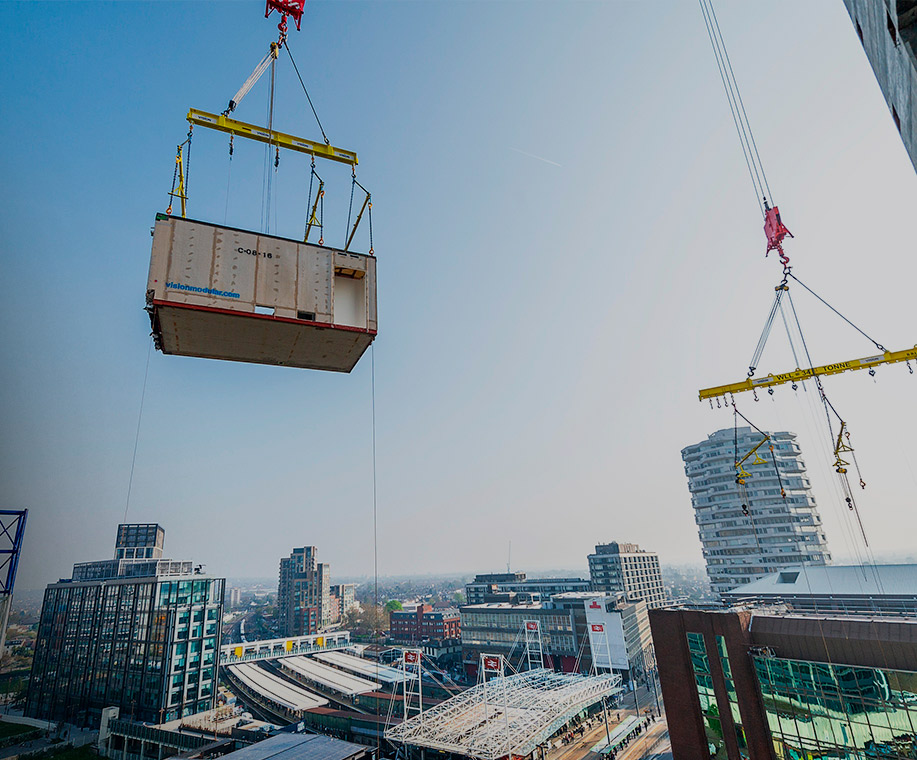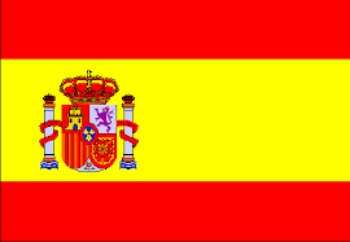Solutions
Início » Solutions
Secure investment
Faster, better and predictable:
– Time compression: up to 50%
– Cost reduction: up to 20%
Preconstruction
Collaborative and integrated project;
It integrates the value chain skills: designers, consultants and suppliers;
Smart engineering solutions;
Effective processes and tools: BIM, Engineering and Value Analysis, Concurrent Engineering, Lean construction and Fast-track Construction;
Accurate planning, budget and supply, integrated with the value chain and Production (manufacturing and assembly).
Fast construction
It is a quick and direct way to compress the deadline and accelerate the construction process, through:
- Standardized and simplified processes;
- Reduced interfaces;
- Rationalized steps;
- Activities developed concurrently;
- Logistics and supply management according to the best industry practices - Supply Chain 4.0 - with agile and continuous flow in the value chain.
Production
Volumetric modules (3D) and panels (2D) produced off-site (factory) and assembled on-site (construction site);
Production in a controlled environment and in accordance with industrial processes;
Construction deadline compression of up to 50%*;
Cost reduction by up to 20% *;
Predictability of prices and deadlines;
Few specialized professionals (versus a large contingent of labor, in traditional construction).
* Source: “Reinventing Construction: a Route to Higher Productivity”, McKinsey (2017)
Customer’s Journey
A specialized architect guides the customer throughout the business process, using virtual reality software;
The customer monitors the manufacturing and assembly, via mobile application.
Note: Patent request filed with INPI.
Technology
Drivers of
Innovation
- Innovative computer system (Customer’s Journey);
- Increased productivity;
- Improvement of performance, durability and quality;
- Greater sustainability, with low waste and greater hydro-energy efficiency.
Smart and Sustainable Products
- Our Engineering develops smart and innovative solutions: comfort, safety, practicality and future serviceability;
- An incredible experience for the customer, since the first contact;
- Dry construction systems, with maximum precision and minimum waste, meeting strict standards of quality, performance and sustainability.
Start your journey now
At ARATAU, your journey was planned to be simple and transparent:
From the beginning, the customer knows the investment value and the delivery time. After all, we are specialists in preconstruction and fast-construction.
There are no uncertainties as in traditional construction. Surprises? Only the pleasant ones!
Get to work? No! Here is “work at the factory”! Our operation focuses on industrialization (off-site).
We have as few activities as possible on-site, where the modules are assembled quickly and accurately.
The customer monitors his product’s manufacture and assembly, through software and mobile application, with total clarity and transparency.
Competitive advantages
Standardized processes and simplified management
Greater control of design and construction
Speed, efficiency and safety in delivery
Lower energy and water consumption
Monitoring by application
Superior quality and performance
Reduction of risks, waste and rework
Reduced operating and maintenance costs
Traditional Construction versus Modular Construction
TRADITIONAL CONSTRUCTION
Accumulation of activities at the construction site, with a greater possibility of delays due to weather conditions and a large contingent of direct labor, which is difficult to manage;
Case-by-case approach: each new venture is a “prototype”;
Fragmented, with a low level of value chain integration;
Difficulties in hiring, training and retaining labor;
Engineering and design deficiencies, with low usage of preconstruction techniques and tools, as well as of processes and systems for project and production management;
Little investment in R&D, technology and innovation;
Quality problems generate rework, project delays and construction schedules, with a consequent increase in construction and maintenance costs;
Impact of the traditional construction problems:
– It affects the sector competitiveness and attractiveness;
– Stress for customers;
– The investors choose other businesses and sectors that allow greater security in obtaining the expected results.

MODULAR CONSTRUCTION
Concentration of activities in industrial assembly line (off-site), with standardized and controlled processes, high productivity, scale economy, more safety, less water and energy consumption;
Greater control of design and construction (manufacturing and assembly);
Speed and predictability: ensuring compliance with costs and deadlines;
More effective and sustainable buildings: greater hydro-energy efficiency, less waste, usage of recyclable materials, less emission of greenhouse gases and less noise, dust and waste generation;
Superior quality and performance, with reduced risks and rework, as well as operating and maintenance costs;
The BIM model and the evolution of digital tools facilitated the design and manufacturing logistics, as well as the delivering of inputs and industrialized components;
Higher technology and innovation embedded in the products;
Quick assembly (on-site), compressing the construction time and minimizing the delays resulting from unfavorable weather conditions;
Greater flexibility and adaptability to the customer’s needs: new modules can be easily added;
Portability: easy to dismantle a modular building and reassemble it in another location;
New perspectives for the real estate market.

Project management
According to the guidelines of the Project Management Institute (PMI) and according to the PMBOK areas of knowledge:
Quality and safety
Procedures and processes in accordance with the sector best practices and standard criteria of:

